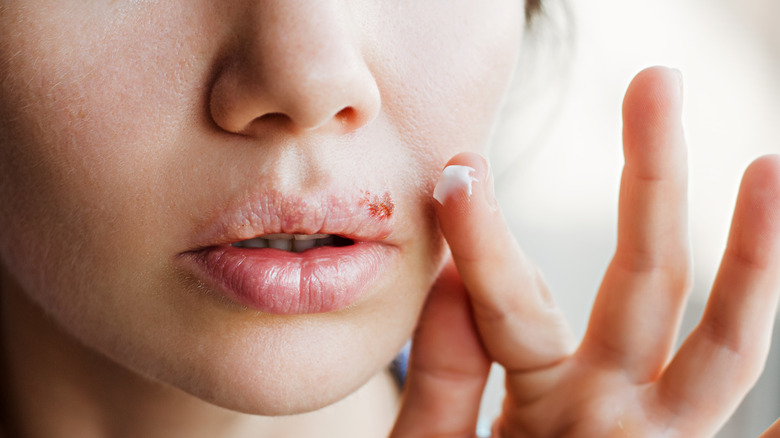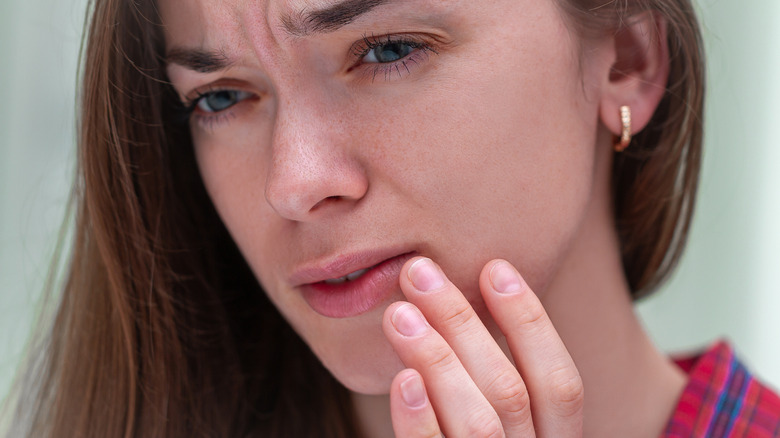Do This If You Have A Cold Sore
Although uncomfortable, most people will likely get a cold sore at one point or another in their lives. Also commonly known as fever blisters or oral herpes, more than 50% of Americans have the HSV-1 virus (via Cleveland Clinic). These highly contagious fluid-filled blisters typically form around the mouth. However, while cold sores may be unsightly, they are not serious or a cause for alarm.
Thankfully, a cold sore will generally clear up on its own within a couple of weeks. However, there are steps you can take that may help shorten the healing time and ease any painful symptoms. Over-the-counter medications to treat cold sores are available without a prescription. You can also see your doctor to get prescription-strength antiviral medication in the form of a pill or cream (via Mayo Clinic). Generally, pills tend to work better than creams. In very severe cases, antiviral drugs can be administered via injection.
Home remedies to treat cold sores
To lessen the pain that can come with cold sores, try applying ice or a cold washcloth over the affected area (via Healthline). Petroleum jelly may also help relieve the discomfort that can come with a cold sore and prevent skin from cracking. Other home remedies include applying aloe vera to the blister, or the use of witch hazel, a natural astringent that can help dry out the cold sore. Remember to use a clean cotton ball or cotton swab when applying these products.
If you get cold sores frequently, your doctor may prescribe antiviral medications to take on a regular basis to control outbreaks. Wearing sunscreen daily can also help prevent cold sores, especially if the sun appears to be a trigger. To prevent spreading cold sores to other people, avoid kissing and skin-to-skin contact for the duration of the time you have the blister. Don't share personal items like utensils, drinking glasses, lip balm, or towels and remember to wash your hands frequently.


